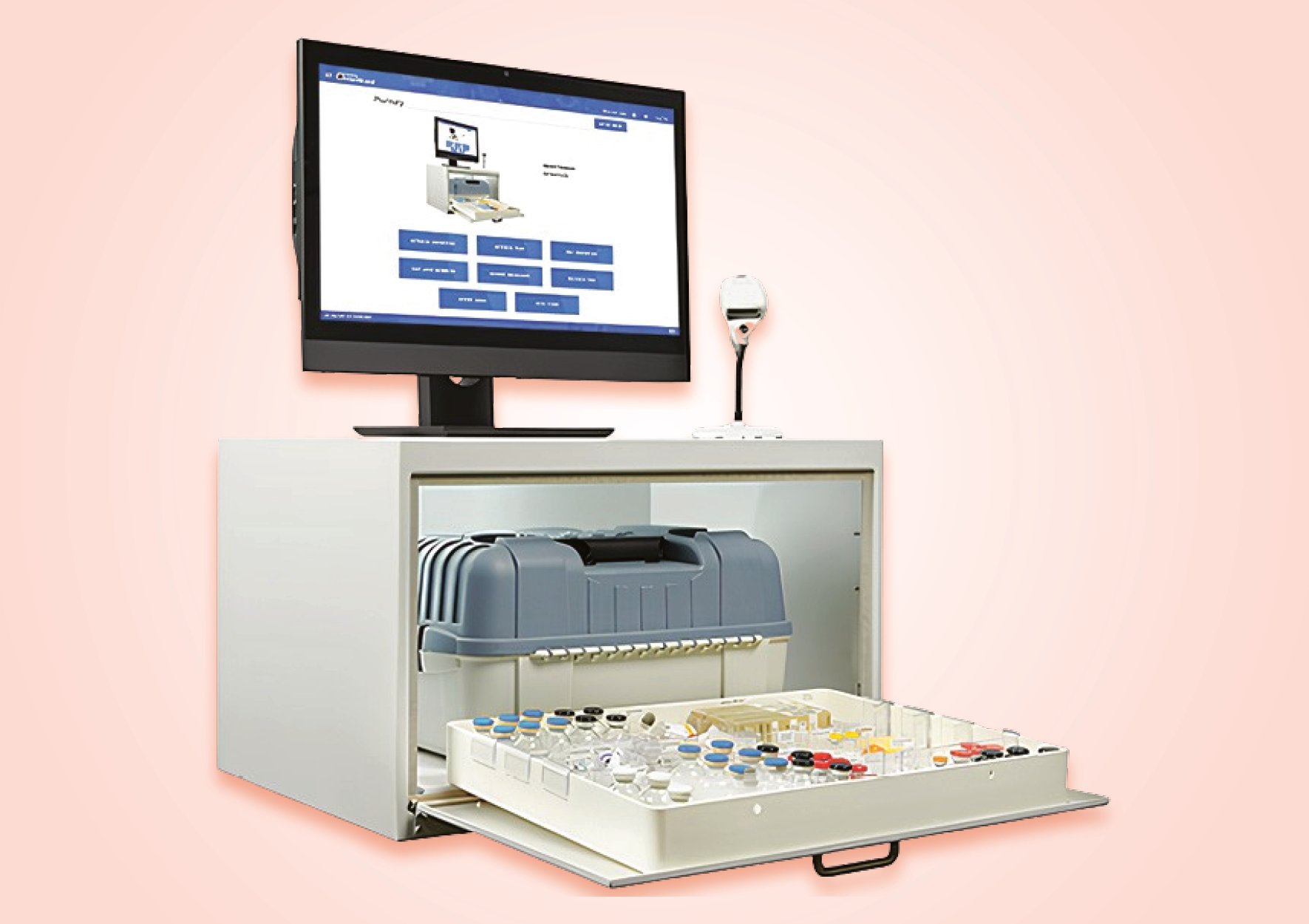- Show Menu
- Contact Us
- FAQs
- Reader Service
- Survey Data
- Survey Winners
- Testimonials
- Upcoming Events
- Webinars
- White Papers
The VA’s Multidisciplinary Approach to Bar Coded Medication Administration Implementation
When it comes to bar coded medication administration (BCMA), the Department of Veterans Affairs (VA) has taken the stance that it takes a village to ensure seamless BCMA use. All departments involved in the implementation, from pharmacy and nursing, to information technology, biomedical engineering, and quality management, play an important role in the process. Each of these stakeholders must act as an equal owner of the BCMA application to attain the ultimate goal of improving medication safety for our nation’s veterans.
When BCMA was first instituted in VA medical facilities in 1999, the importance of taking a multidisciplinary approach was stressed. Each VA medical center was advised to form a BCMA Focus Group to discuss concerns and establish policies and protocols across disciplines to improve clinical practices pre-, during, and post-BCMA implementation. The group was directed to use a team approach to identify policy and procedure variations that could lead to compromised patient safety. So, how did VA facilities ensure a multidisciplinary team would provide the constant level of support required for BCMA to be executed safely and effectively?
Role of the BCMA Coordinator
The first step was to appoint a BCMA coordinator who is responsible for developing and implementing the processes to improve the safety, efficacy, and efficiency of medication management processes associated with BCMA. A mandate in October 2004 from the Veterans Health Administration’s (VHA) Office of the Deputy Under Secretary for Health for Operations and Management (DUSHOM) required each medical center to have a BCMA coordinator. BCMA coordinators need to understand how the software functions and how pharmacy’s finishing of orders affects what appears in BCMA. In addition, good communication and teaching skills along with the ability to multitask are musts. Currently, there are 146 BCMA coordinators within VA’s health care system.
Multidisciplinary BCMA Committee
Once the BCMA coordinators were in place, the second step was to ensure they had ongoing multidisciplinary support to implement any necessary changes to promote the proper use of the software, affect oversight and maintenance of equipment, and provide guidance on business-related processes.
To accomplish this, DUSHOM mandated in December 2004 that each medical center form a BCMA multidisciplinary committee that meets monthly to resolve BCMA issues. This committee replaced the original BCMA Focus Group and is a subcommittee of the Pharmacy and Therapeutics Committee. Senior management at each facility is responsible for ensuring the committee is created and appropriately supported.
The BCMA multidisciplinary committee, which comprise end users and affiliates who can act as change agents at the local facility, should be limited to 10-15 members, ensuring adequate representation of all BCMA stakeholders.
The BCMA multidisciplinary committee and the BCMA coordinator work together to ensure patient safety is optimized, and this teamwork is central to VA’s success with BCMA. Part of this collaboration includes the BCMA coordinator facilitating the committee meetings. Among the topics currently being addressed in committee meetings are:
Operational practices addressing problem resolution, missed doses, and work-arounds
Staff training and education, including new employee orientation and annual staff competencies for nursing and pharmacy
Equipment issues such as performance and response time, maintenance and repair, and life cycle replacement
Bar code quality on patient wristbands and medications
Performance measures, such as PRN effectiveness documentation, completion of IV documentation and medication variance reporting
Future Plans
As the VA moves to incorporate the positive patient identification safety aspects of BCMA to the collection of laboratory specimens and the administration of blood products, the multidisciplinary committee’s membership has recently been expanded. It now includes laboratory staff (i.e., clinical laboratory specialists and pathologists), phlebotomists (i.e., blood bank technologists), and a bar code expansion coordinator. To reflect this expansion, the BCMA multidisciplinary committee has been renamed the Clinical Bar Code Multidisciplinary Committee (CBCMC). It is recommended that this committee report to the clinical executive board or its equivalent.
Conclusion
The approach at the VA to all clinical bar code applications is defined by the premise that anyone who utilizes the system, regardless of their discipline, must be a partner in making the system work. Because no single discipline can have a complete understanding of another’s responsibilities, expertise from every user is required to achieve success. This expert knowledge base that is shared among the work group is one of the reasons that BCMA has been so successful in the VA health care system.
Ronald Schneider, RPH, MHA, is the pharmacist consultant for the Department of Veterans’ Affairs Bar Code Resource Office. He has an extensive background in pharmacy automation systems and operations. He holds a BS in pharmacy and a master’s degree in health care administration from the University of Maryland.
Elizabeth Mims, RN, is a nurse consultant for the Department of Veterans’ Affairs Bar Code Resource Office. Ms. Mims has 10 years experience working with clinical bar code applications with a special interest in the clinical business operations of the technical solutions. Ms. Mims has a BS in nursing, a master’s degree in business administration/health care management, and is a project management professional.
Russ Carlson, RN, BSN, MHA, is the deputy chief health informatics officer for the Veterans Health Administration’s Office of Health Information. Mr. Carlson, as part of the national team, has received multiple national honors for efforts contributing to the
success of BCMA.
Chris L. Tucker, RPh, is director of the Bar Code Resource Office within the Veterans Health Administration’s Office of Information. His office provides strategic direction for BCMA and clinical laboratory, anatomic pathology, and blood administration bar code applications. He received his pharmacy degree from Kansas University and a masters certificate in project management from George Washington University’s School of Business and Public Management. Mr. Tucker is a member of the Executive Council for the Patient Safety Reporting System administered by the NASA Ames Research Center and co-chairs the GTIN Healthcare Users Group for GS-1.
Like what you've read? Please log in or create a free account to enjoy more of what www.pppmag.com has to offer.








